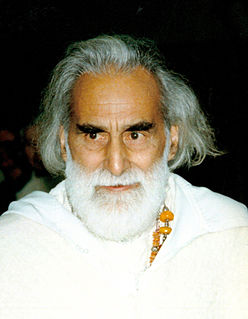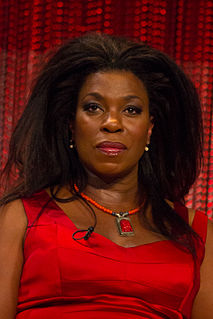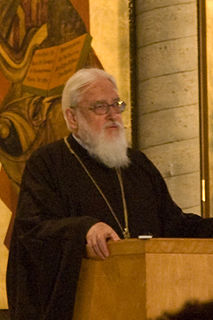A Quote by Vilayat Inayat Khan
In our relationships we need to uphold that aspect of the person which is the real person and the soul beyond their own self-doubt.
Quote Topics
Related Quotes
Feminist effort to end patriarchal domination should be of primary concern precisely because it insists on the eradication of exploitation and oppression in the family context and in all other intimate relationships. It is that political movement which most radically addresses the person – the personal – citing the need for the transformation of self, of relationships, so that we might be better able to act in a revolutionary manner, challenging and resisting domination, transforming the world outside the self.
Submitting self to God is the only real freedom-because the deepest slavery is self-dependence, self-reliance. When you live your life believing that everything (family, finances, relationships, career) depends primarily on you, you're enslaved to your strengths and weaknesses. You're trying to be your own savior. Freedom comes when we start trusting in God's abilities and wisdom instead of our own. Real life begins when we transfer our trust from our own efforts to the efforts of Christ.
The isolated individual is not a real person. A real person is one who lives in and for others. And the more personal relationships we form with others, the more we truly realize ourselves as persons. It has even been said that there can be no true person unless there are two, entering into communication with one another.
There are no insignificant relationships. Every experience that we have contains purpose and meaning. Each event, each person in our lives embodies an energetic fragment of our own psyche and soul. Our individual spiritual task is to recognize and integrate all of them into our awareness so that the greater pattern of our mission can shine forth in its full dimensions.
A job is a vocation only if someone else calls you to do it for them rather than for yourself. And so our work can be a calling only if it is reimagined as a mission of service to something beyond merely our own interests. Thinking of work mainly as a means of self-fulfillment and self-realization slowly crushes a person.
We don't save our soul and leave our emotions and our feelings and our body and all the rest of it out. That's just a way of talking that emphasizes the soul is so fundamental that we can, in some cases, treat it as the whole person because it actually is the thing that integrates all of these aspects of the self and makes them work together. Now, I don't think we can find a passage in the Bible that says that. We have to read and study how it addresses the soul, and we then see that it is the deepest, most vital part of the human self.
Love is about bottomless empathy, born out of the heart’s revelation that another person is every bit as real as you are. And this is why love, as I understand it, is always specific. Trying to love all of humanity may be a worthy endeavor, but, in a funny way, it keeps the focus on the self, on the self’s own moral or spiritual well-being. Whereas, to love a specific person, and to identify with his or her struggles and joys as if they were your own, you have to surrender some of your self.
I mean, what is racism? Racism is a projection of our own fears onto another person. What is sexism? It's our own vulnerability about our potency and masculinity projected as our need to subjugate another person, you know? Fascism, the same thing: People are trying to untidy our state, so I legislate as a way of controlling my environment.
I think our brains does have a tendency to be true to its own ideas and statements. Everything we do and everything we think about is a belief. Until we get to the point where we look beyond our own ego-self, and to some degree beyond our own mind, we are always going to make assumptions and have beliefs to make our brains feel more comfortable. And if we can get to a point where we embrace that uncertainty and doubt, and be willing to learn from that and to explore that, I think that that could be a very positive experience.
































